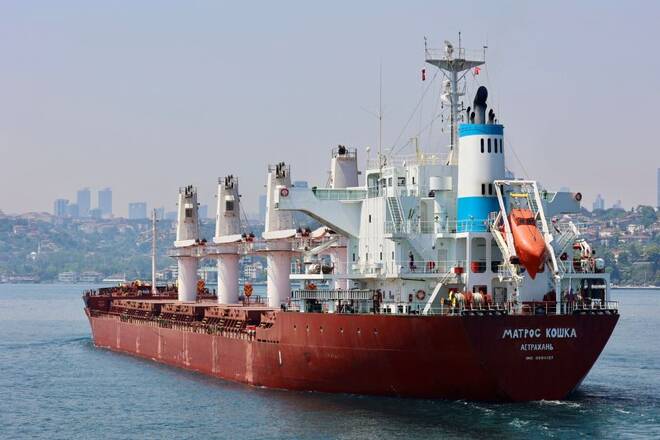Advertisement
Advertisement
U.S. urges countries to reach out if having issues with Russian food, fertilizer exports
By:
By Michelle Nichols NEW YORK (Reuters) - Countries should ask the United States for help if they have any problems importing Russian food and fertilizer, a senior U.S. official said on Wednesday, stressing that such goods were not subject to U.S. sanctions over Moscow's war in Ukraine.
By Michelle Nichols
NEW YORK (Reuters) – Countries should ask the United States for help if they have any problems importing Russian food and fertilizer, a senior U.S. official said on Wednesday, stressing that such goods were not subject to U.S. sanctions over Moscow’s war in Ukraine.
“Nothing is stopping Russia from exporting its grain or fertilizer except to own policies and actions,” U.S. State Department Bureau of Economic and Business Affairs Assistant Secretary, Ramin Toloui, told reporters.
But he added that concerns had been raised about “so-called over compliance with sanctions.” Washington has slapped Moscow with a broad range of sanctions since Russia invaded neighboring Ukraine on Feb. 24.
Facilitating Russian food and grain exports is a key part of attempts by U.N. and Turkish officials to broker a package deal with Moscow that would also allow for shipments of Ukraine grain from the Black Sea port of Odesa.
A meeting between Russia, Ukraine, Turkey and U.N. officials would likely be held in Istanbul in coming weeks, sources in the Turkish presidency said on Tuesday.
“We are fully supportive of this and want to see that play out,” Toloui said of the U.N. efforts. “We’ll continue close coordination with the U.N. delegation and the government of Ukraine on ways to mitigate the impacts to global food security of (Russian President Vladimir) Putin’s war in Ukraine.”
Russia’s war has stoked a global food crisis. Russia and Ukraine account for nearly a third of global wheat supplies, while Russia is also a key fertilizer exporter and Ukraine is an exporter of corn and sunflower oil.
Moscow denies responsibility for the food crisis, blaming Western sanctions and Ukraine for mining its Black Sea ports.
“The United States does not want there to be impediments to the ability of countries, companies to purchase Russian food, Russian fertilizer, and for those goods to access international markets,” Toloui said.
He encouraged countries to contact the U.S. Treasury Department or local U.S. embassies if they were having issues.
U.S. Secretary of State Antony Blinken will attend a food security ministerial meeting in Germany on Friday ahead of a three-day Group of Seven (G7) nations summit, also in Germany, starting Sunday.
(Reporting by Michelle Nichols and Kanishka Singh; Editing by Marguerita Choy)
About the Author
Reuterscontributor
Reuters, the news and media division of Thomson Reuters, is the world’s largest international multimedia news provider reaching more than one billion people every day. Reuters provides trusted business, financial, national, and international news to professionals via Thomson Reuters desktops, the world's media organizations, and directly to consumers at Reuters.com and via Reuters TV. Learn more about Thomson Reuters products:
Did you find this article useful?
Latest news and analysis
Advertisement
